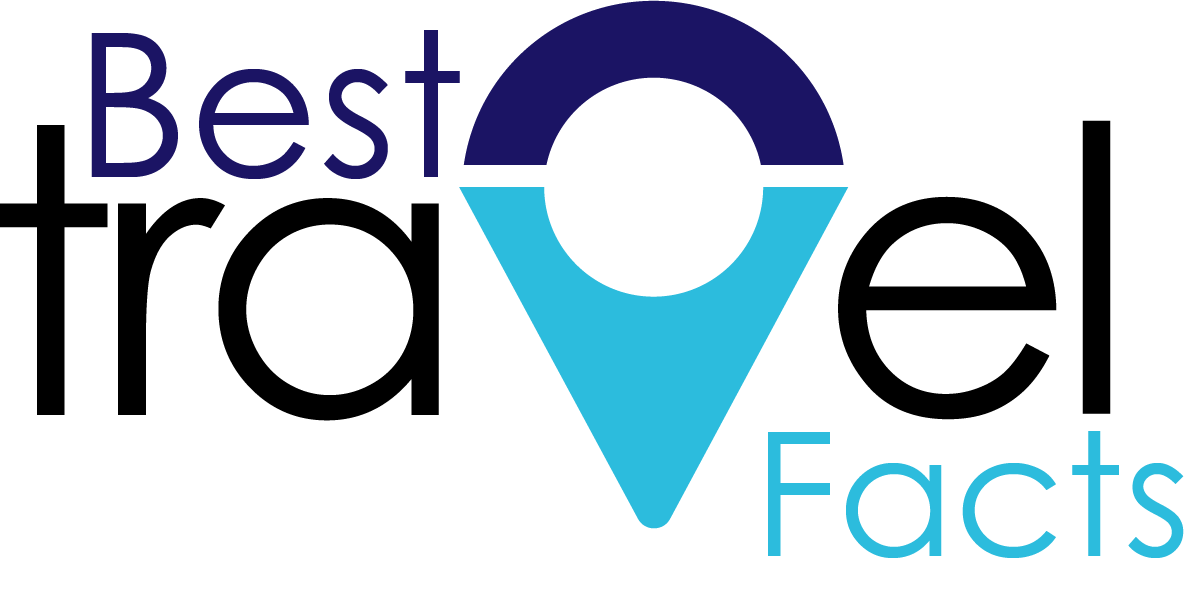Travelling to a new country can be an exciting experience. It can also be expensive, however, depending on where you choose to go. If budget is important, then it pays to do your research beforehand and find out which countries offer the best value for money. One such region of interest is the Schengen area – but what is the cheapest Schengen country? In this article we will explore this question in more detail, giving potential travellers all the information they need to make informed decisions about their next trip abroad.
The Schengen area consists of 26 European countries that have agreed to abolish passport and any other type of border control at their mutual borders. This has made travelling between these countries much easier and cheaper than before. With so many options available, finding the right destination can be daunting – especially if you’re looking for value for money. Fortunately, with some careful consideration and research, it’s possible to identify which Schengen country offers the lowest prices while still providing an enjoyable experience!
Overview Of The Schengen Area
The Schengen Area is a part of the European Union consisting of 26 countries, including Austria, France, Greece and Spain. This area has been designed to promote free movement within its borders by allowing citizens from member states to travel between them without requiring visas or passport checks. It also allows for a single currency – the euro- to be used throughout the region. The Schengen Area encompasses more than 400 million people which makes it one of the most popular tourist destinations in Europe.
Exploring visas and other aspects of the Schengen Agreement can offer travelers an array of opportunities that are often not available elsewhere. For example, those who possess valid travel documents may cross internal borders with ease, visit multiple countries within a short period of time, access numerous attractions and events at their destination(s), enjoy discounted rates on accommodations and transportation services, as well as benefit from benefits such as visa exemptions when traveling abroad.
Cost of accommodation varies widely across different parts of the Schengen Area but generally speaking Lithuania is considered among some of the cheapest countries in this zone. Its capital city Vilnius offers budget-friendly hotels, hostels, guesthouses and apartments that provide comfortable stays at reasonable prices along with good public transport links that allow easy access to sights and sounds around town. In addition, Lithuanian cuisine is renowned for being both delicious and affordable too!
Cost Of Accommodation
Having discussed the general overview of the Schengen Area, it is now possible to consider costs associated with travel and accommodation. While summer tourism in many destinations can be expensive, there are still plenty of budget friendly options available for those looking to visit a Schengen country on a budget.
The cheapest Schengen countries tend to have lower living expenses overall; this includes everything from housing costs to basic necessities like food and transportation. Some of the most affordable destinations include Lithuania, Latvia, Slovakia, Bulgaria, Hungary, Romania and Poland – each of which offer great value when it comes to accommodation prices.
For example, during peak season visitors may find hotel rooms starting at around $20/night in some cities or even hostels as low as $5 per night on average! For travelers willing to stay outside of city centers or opt for more basic accommodations they can often save even more money. With these tips and tricks you can stretch your budget further while still enjoying all the amazing sights that Europe has to offer.
In terms of food prices across Schengen countries there is not much variation between nations; although certain locations will be cheaper than others depending upon local price fluctuations.
Food Prices In Schengen Countries
There is no one-size-fits-all answer to the question of which Schengen country offers the lowest food prices. The cost of food in any given country is dependent on a number of factors, such as currency exchange rates, local availability and popularity of certain items, distribution methods, and even visa requirements. However, some countries are consistently cheaper than others when it comes to groceries and dining out.
One of the most affordable options for those looking to purchase their meals while traveling within the Schengen zone is Lithuania. With its low prices on staple foods like vegetables and dairy, along with typically reasonable restaurant costs, it can be an excellent choice for budget travelers. Additionally, Lithuanian restaurants often feature traditional dishes from other parts of Eastern Europe that are hearty yet inexpensive.
Hungary also has a reputation for being relatively affordable in terms of food prices compared to other Schengen nations. Its mix of classic Hungarian classics alongside international cuisines makes it both accessible and economical depending on your preferences. Of course, as always with travel expenses you should take into account how much you plan to spend in order to get the best value possible. Moving forward then, let’s explore what kind of transportation costs we might expect when visiting these countries!
Cost Of Transportation
When it comes to finding the cheapest Schengen country, transportation options and travel budget are important factors. In order to save money while travelling, one should look into both airfare and ground transport costs.
Airfare is typically more expensive than taking a train or bus between cities in Europe. However, booking flights ahead of time can be an effective way to minimize expenses on long-distance trips. Additionally, there are often discounted fares for those planning to stay in the same city for multiple days or weeks. It’s also possible to find cheaper flights by looking at alternative airports nearby as well as opting for low-cost airlines that don’t always show up in traditional search results.
Ground transport within most European countries tends to be inexpensive compared to other parts of the world. Buses and trains make frequent stops throughout major cities, making them convenient for short trips; however, they may not be ideal when traveling over longer distances due to their slower speed. Taking advantage of discount cards such as rail passes can help reduce overall cost since they offer unlimited rides within certain periods of time. Car rentals are another option but can be relatively pricey unless shared with friends or family members who will share fuel costs too.
No matter what method of transportation you choose, careful planning is key when considering your travel budget and finding the best deal possible. From researching flight prices early on to comparing different ground transportation methods available – doing so will ensure you get the most bang for your buck!
Other Factors To Consider
Transitioning from the discussion of transportation costs, it’s important to consider other factors when looking for a Schengen country with the lowest cost. Studies have shown that airfare costs and visa fees are two major considerations for travelers. According to research conducted by Euromonitor International, in 2019 visa fee expenditure accounted for over $3 billion globally. Further analysis reveals that some countries will charge more than others depending on your nationality or where you are visiting from.
In addition to the typical expenses associated with international travel such as accommodation and food, visitors should also pay attention to any additional costs they may incur while staying in Europe; this could include public transport fares, museum entry fees and tourist attractions prices. For example, tourists who visit Italy can expect to pay an average of €24 per person admission fee for popular landmarks like St Mark’s Basilica in Venice or Colosseum in Rome. The total cost of a trip abroad is not always easy to determine ahead of time without proper planning and budgeting.
Despite these potential hidden extras however, there are still many ways savvy travelers can save money if they choose their destination wisely. Countries like Hungary offer great value tours which provide access to local attractions at discounted rates while Lithuania has been known to be one of the cheapest options overall due its low-cost flights and free city walks. Ultimately, selecting the right destination can make all the difference between having an unforgettable experience and spending too much money along the way.
Frequently Asked Questions
What Is The Visa Application Process For Schengen Countries?
The visa application process for Schengen countries can vary greatly depending on the country of origin. For many travelers, it involves a lengthy and tedious paperwork process that may require language translation to overcome any language barriers. Documents such as passports, proof of accommodation, travel itineraries, financial statements, and other personal information must be submitted in order to apply for an entry visa. Additionally, some countries may also ask visitors to provide evidence of their ability to fund themselves during their stay in terms of tourist attractions or activities. While this is intimidating for many potential visitors, understanding the full requirements early on can make the entire process smoother and more efficient.
Are There Any Special Requirements For Travelers From Certain Countries?
Planning a trip to Europe? Many countries require travelers from certain nations to meet special requirements, such as additional documentation and higher costs. To make sure you can smoothly and successfully travel on a budget, it’s important for those looking to explore the Schengen area to be aware of any extra traveling costs or budget tips that may apply before beginning your journey. Alliteration aside, researching visa application processes and fees associated with different countries ahead of time will help ensure an enjoyable experience without unexpected surprises!
Are There Any Discounts Available For Schengen Visas?
When budgeting for a Schengen visa, travelers should look into discounts that may be available. Travel insurance is an important factor to consider when booking trips abroad and many companies offer discounts on their policies when traveling to a Schengen country. Additionally, there are often special offers or packages available through travel agencies which can help lower the expenses associated with obtaining a visa. Taking advantage of these opportunities can make traveling within the Schengen area much more affordable, allowing people to experience life in Europe without breaking the bank!
Are There Any Special Health And Safety Considerations When Traveling To A Schengen Country?
Exploring a Schengen country can provide an exhilarating experience that is filled with the promise of freedom, but travelers should also be aware of any potential health and safety risks. Before embarking on their journey, it’s wise to conduct a risk assessment for each destination and purchase travel insurance if necessary. It’s also important to check government regulations regarding quarantine restrictions or other health measures in place due to COVID-19 before planning the trip. By taking these simple steps, travelers can ensure a safe and enjoyable adventure into one of the most remarkable regions in Europe.
What Is The Best Way To Save Money While Traveling In The Schengen Area?
When traveling in the Schengen Area, there are many budgeting tips to help you save money. One of the best ways to do this is by minimizing transportation costs. Services such as carpooling and public transit can be used instead of renting a vehicle or taking taxis every time. Additionally, research local discounts for attractions, food, lodging and more that may not be advertised online. By doing some extra planning before your trip and being mindful of your spending while abroad, you can make sure that you enjoy your vacation without breaking the bank.
Conclusion
Overall, traveling to the Schengen area can be expensive. However, there are ways to save money while still experiencing all that Europe has to offer. For example, many countries offer discounted visas for travelers from certain nations or health and safety considerations when travelling in the region. Additionally, budget-conscious travellers can look into alternative accommodation options such as hostels and couchsurfing to reduce costs. With a bit of research and planning, you can find yourself enjoying your European holiday without breaking the bank!




























